Abstract
OBJECTIVES: The purpose of this study was to examine the effects on immunization coverage of 3 incentives for physicians--a cash bonus for practice--wide increases, enhanced fee for service, and feedback. METHODS: Incentives were applied at 4-month intervals over 1 year among 60 inner-city office-based pediatricians. At each interval, charts of 50 randomly selected children between 3 and 35 months of age were reviewed per physician. RESULTS: The percentage of children who were up to date for diphtheria, tetanus, and pertussis and Haemophilus influenzae type b; polio; and measles-mumps-rubella immunization in the study's bonus group improved by 25.3 percentage points (P < .01). No significant changes occurred in the other groups. However, percentage of immunizations received outside the participating practice also increased significantly in the bonus group (P < .01). Levels of missed opportunities to immunize were high in all groups and did not change over time. Physicians' knowledge of contraindications was low. CONCLUSIONS: Bonuses sharply and rapidly increased immunization cover-age in medical records. However, much of the increase was the result of better documentation. A bonus is a powerful incentive, but more structure or education may be necessary to achieve the desired results.
Full text
PDF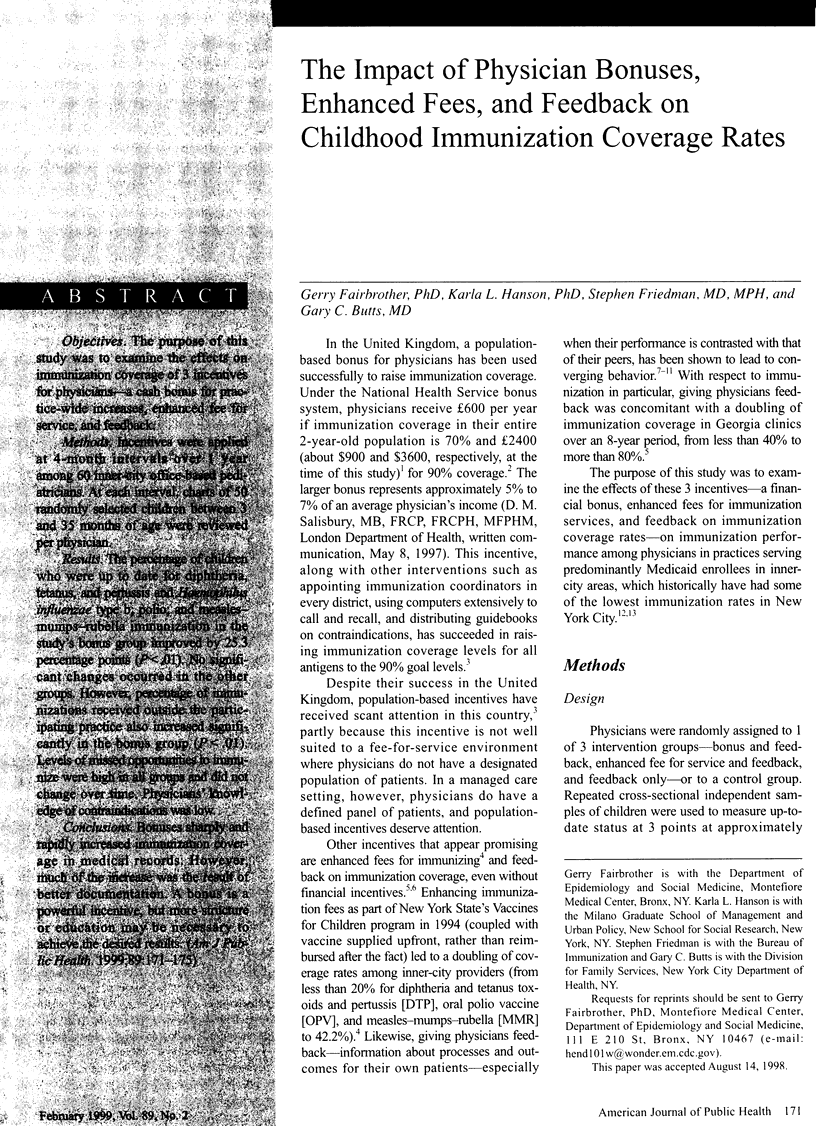
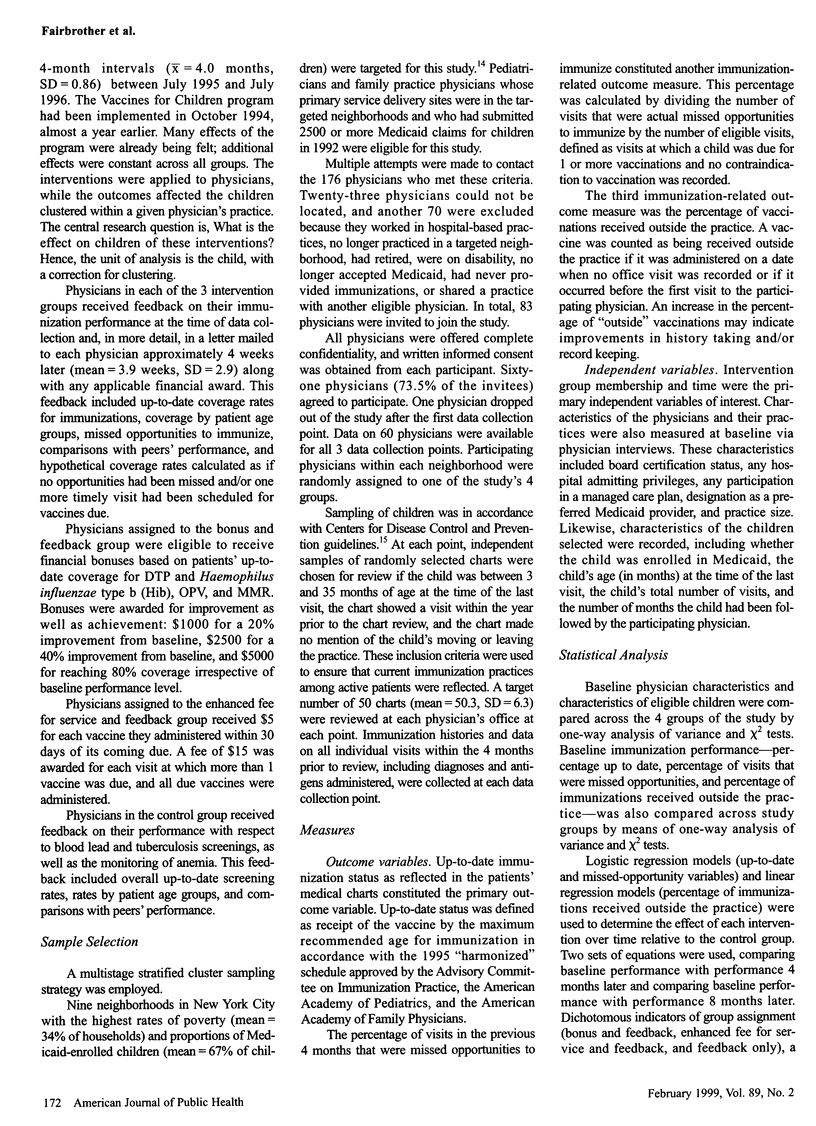
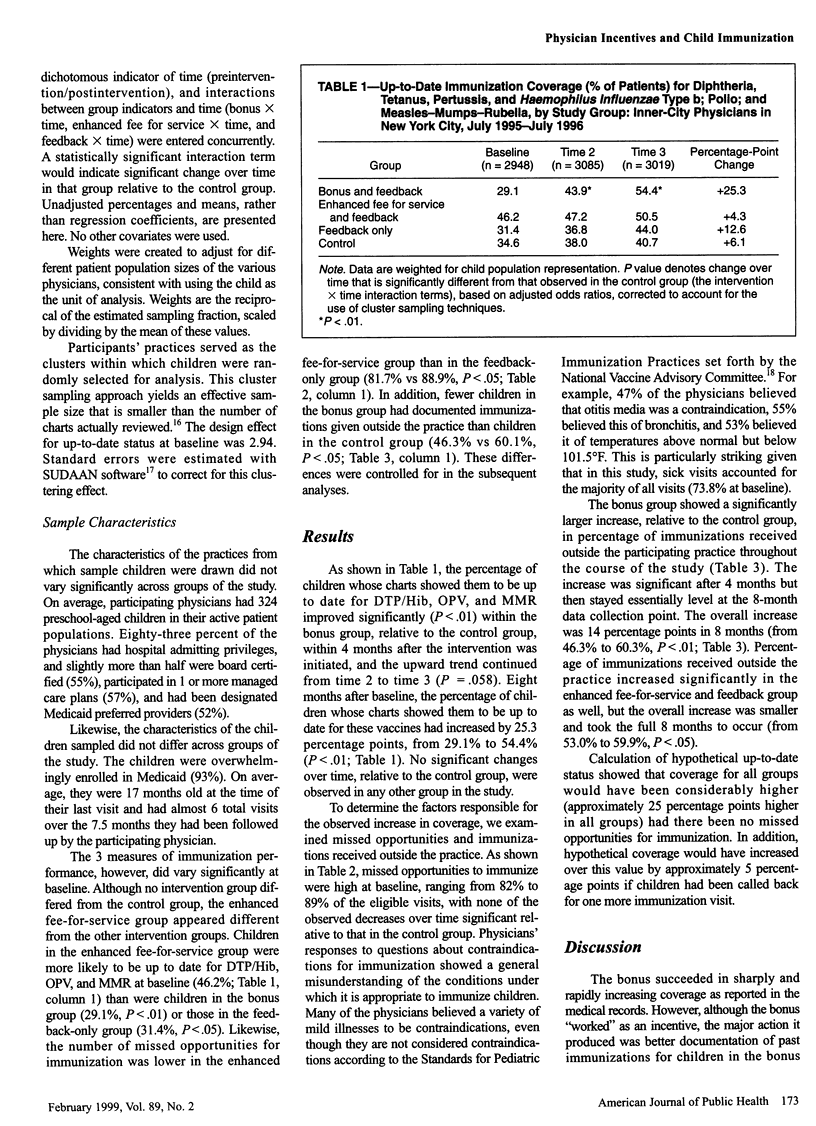
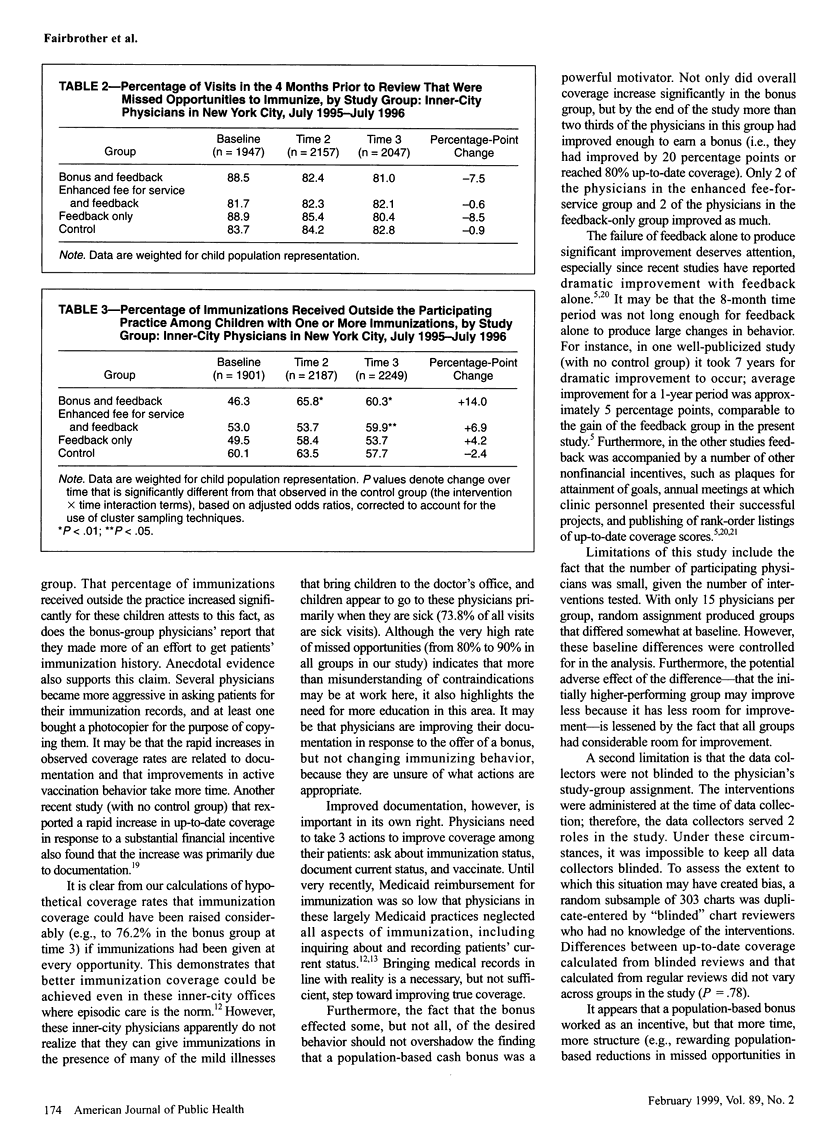
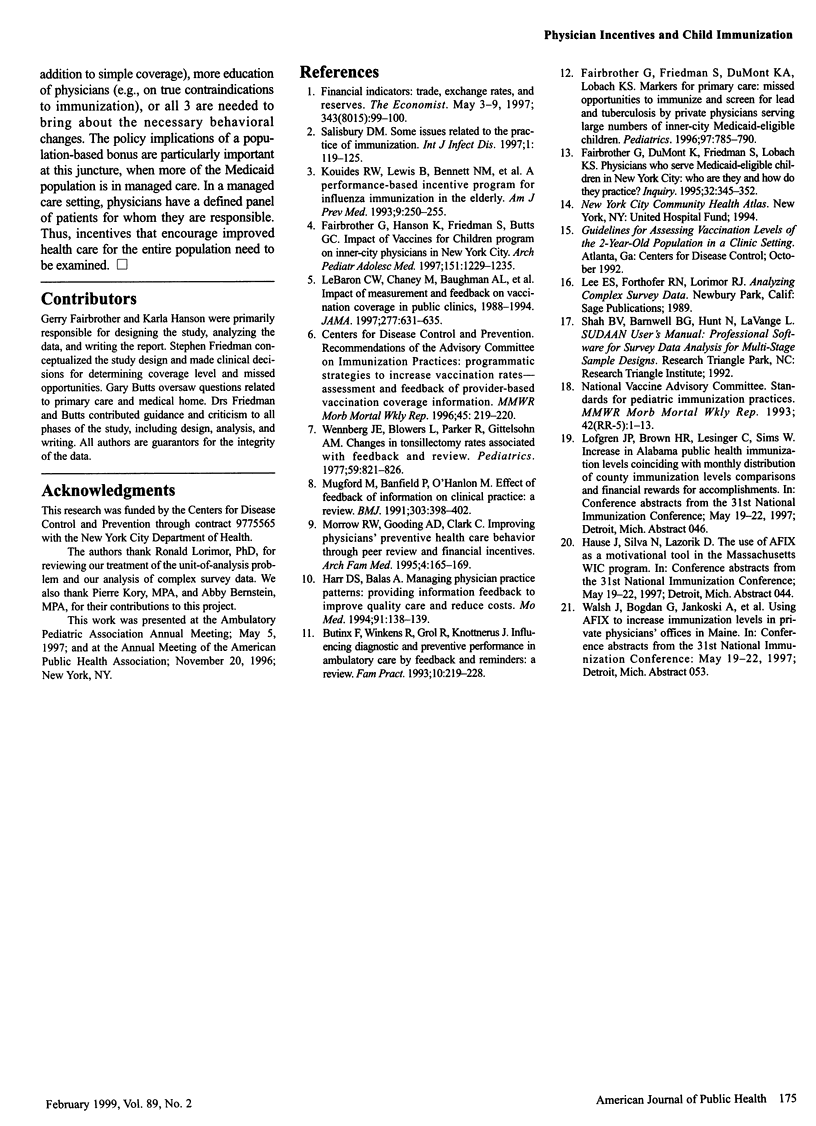
Selected References
These references are in PubMed. This may not be the complete list of references from this article.
- Buntinx F., Winkens R., Grol R., Knottnerus J. A. Influencing diagnostic and preventive performance in ambulatory care by feedback and reminders. A review. Fam Pract. 1993 Jun;10(2):219–228. doi: 10.1093/fampra/10.2.219. [DOI] [PubMed] [Google Scholar]
- Fairbrother G., DuMont K. A., Friedman S., Lobach K. S. New York City physicians serving high volumes of Medicaid children: who are they and how do they practice? Inquiry. 1995 Fall;32(3):345–352. [PubMed] [Google Scholar]
- Fairbrother G., Friedman S., DuMont K. A., Lobach K. S. Markers for primary care: missed opportunities to immunize and screen for lead and tuberculosis by private physicians serving large numbers of inner-city Medicaid-eligible children. Pediatrics. 1996 Jun;97(6 Pt 1):785–790. [PubMed] [Google Scholar]
- Fairbrother G., Friedman S., Hanson K. L., Butts G. C. Effect of the vaccines for children program on inner-city neighborhood physicians. Arch Pediatr Adolesc Med. 1997 Dec;151(12):1229–1235. doi: 10.1001/archpedi.1997.02170490055010. [DOI] [PubMed] [Google Scholar]
- Harr D. S., Balas A. Managing physician practice patterns: providing information feedback to improve quality care & reduce cost. Mo Med. 1994 Mar;91(3):138–139. [PubMed] [Google Scholar]
- Kouides R. W., Lewis B., Bennett N. M., Bell K. M., Barker W. H., Black E. R., Cappuccio J. D., Raubertas R. F., LaForce F. M. A performance-based incentive program for influenza immunization in the elderly. Am J Prev Med. 1993 Jul-Aug;9(4):250–255. [PubMed] [Google Scholar]
- LeBaron C. W., Chaney M., Baughman A. L., Dini E. F., Maes E., Dietz V., Bernier R. Impact of measurement and feedback on vaccination coverage in public clinics, 1988-1994. JAMA. 1997 Feb 26;277(8):631–635. [PubMed] [Google Scholar]
- Morrow R. W., Gooding A. D., Clark C. Improving physicians' preventive health care behavior through peer review and financial incentives. Arch Fam Med. 1995 Feb;4(2):165–169. doi: 10.1001/archfami.4.2.165. [DOI] [PubMed] [Google Scholar]
- Mugford M., Banfield P., O'Hanlon M. Effects of feedback of information on clinical practice: a review. BMJ. 1991 Aug 17;303(6799):398–402. doi: 10.1136/bmj.303.6799.398. [DOI] [PMC free article] [PubMed] [Google Scholar]
- Wennberg J. E., Blowers L., Parker R., Gittelsohn A. M. Changes in tonsillectomy rates associated with feedback and review. Pediatrics. 1977 Jun;59(6):821–826. [PubMed] [Google Scholar]


